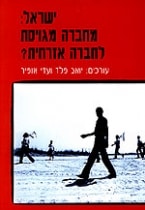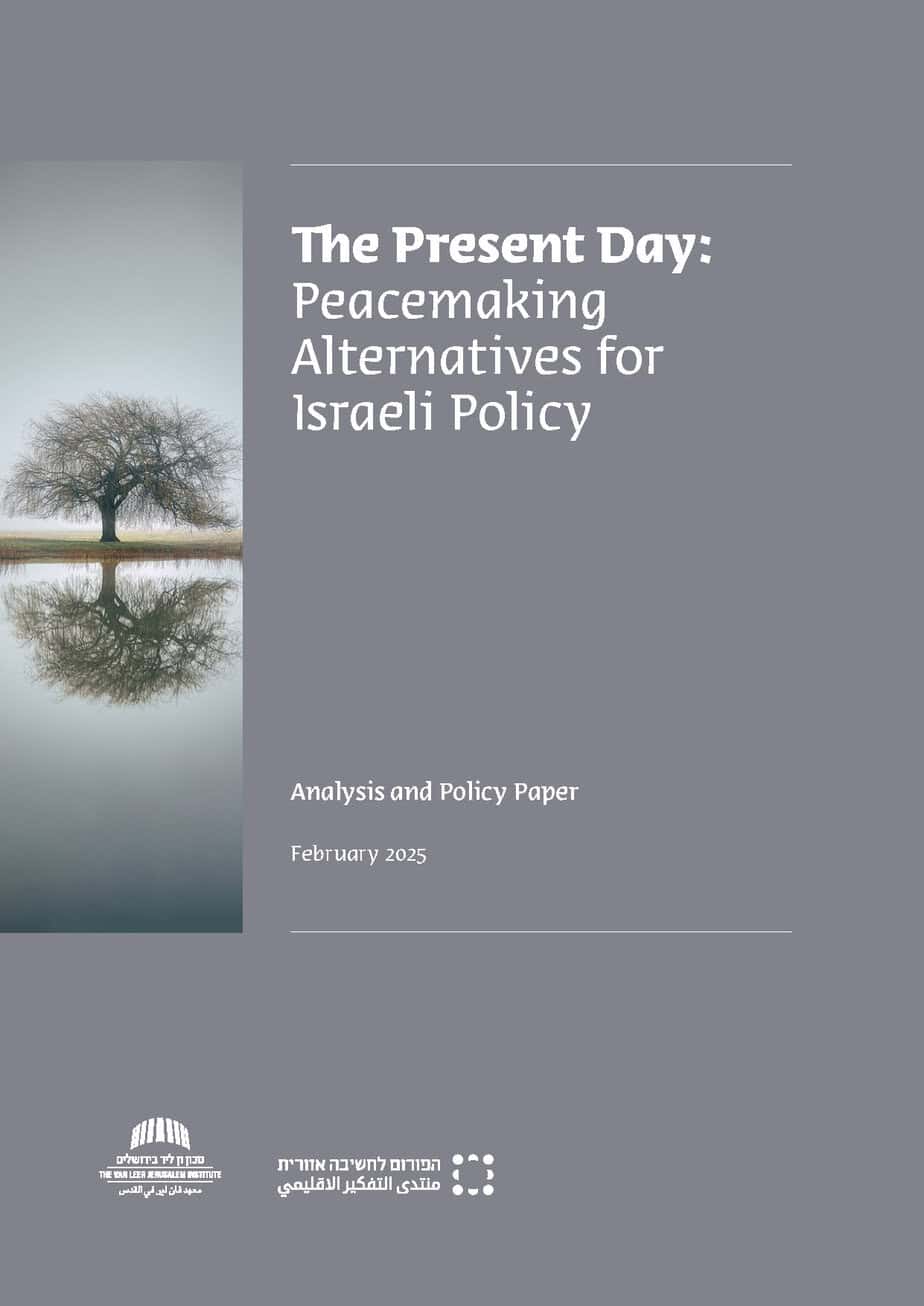Israel: From Mobilized to Civil Society?
| Edited by | Yoav Peled, Adi Ophir
|
| Publisher | Van Leer Institute Press and Hakibbutz Hameuchad |
| Language | Hebrew |
| Year of Publication | 2001 |
| Series | Theory in Context Series |
For the past thirty years “civil society” has been the rallying cry of liberal opposition to totalitarian regimes in Eastern Europe and Latin America. It is also the name of a model alternative society that is supposed to contend with the ills of liberal society itself, and it is a concept with multiple meanings in theories of social science and political science. In the public discourse in Israel echoes of the various uses of the term have been heard in talk about a civil agenda, a civil revolution, and Israel as a state of all its citizens.
This book seeks to clarify what exactly a civil society is and whether, in the shadow of the occupation and despite the continuing conflict between the state of Israel and the Palestinians, such a society is being established in Israel. The first part is devoted to an examination of several meanings of the term and several of its uses made in the history of political thought in the modern era, from Locke and Motesquieu to Gramsci, Habermas, and Arendt. The second part of the book includes papers that examine from close up, and from a variety of critical perspectives, characteristics of civil society and processes of becoming civil, in various sectors and areas in Israeli society. The topics discussed here include processes of liberalization and democratization of the government and its systems, the retreat of Israel’s periphery society in light of the developments in the peace process, the privatization of the health services, the civil status of women in Israel, the constitutional revolution and the role of the Supreme Court in the establishment of a civil society, and the budding of a Palestinian civil society within the boundaries of the state of Israel.
This book is evidence of a defining moment in the history of Israeli society and of the development of sociological and political research on Israel. It was begun in a period of significant progress toward reconciliation between Israel and the Palestinians; it is being published in a period in which violence has flared up again, tribal affiliation is overcoming civil reason, and war-mongering and nationalist rhetoric are again setting the Israeli agenda. The events of the coming months will determine whether this book is the expression of prescient thinking that was able to foresee the future, or whether it is fascinating evidence of a passing moment in Israeli culture, a possibility that was not realized, an opportunity that was missed.
Out of print




